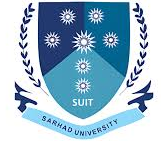Adopting Samart Quality Practices within the Framework of Digital Business Transformation: A Case Study of Al-Rasheed Bank in Mosul
Keywords:
Smart Quality, Artificial Intelligence Tools, Digital BusinessAbstract
The research is centered on illuminating intelligent quality through the application of artificial intelligence tools. These encompass intelligent automation, smart sensing, comprehensive data analysis, intelligent quality monitoring, information security, and continuous employee training. The aim is to transition towards digital banking operations at Al-Rasheed Bank. The descriptive-analytical approach was adopted by examining numerous sources related to the research topic to provide a theoretical perspective. As for the practical aspect, it relied on analyzing the survey results using statistical software (SPSS, Version 28) to obtain the findings and present recommendations. The research yielded several key findings, most notably confirming the existence of a correlation with a percentage reaching 83.9%. Additionally, it demonstrated an impact with a percentage of 78.9% between smart quality practices and the transition towards digital business. This research employed a questionnaire survey to delineate and diagnose the main variables, aiming to ascertain the extent of the impact of the independent variable on the dependent variable. This research stands out in its comprehensive and data-driven exploration of a set of artificial intelligence tools (smart quality), taking into consideration a wide array of factors and their practical effects to enhance banking operations for digital transformation in the Iraqi environment.
Downloads
Published
Issue
Section
License
Copyright (c) 2024 Zaid Khaleel Ibrahim, Noor Sabah Issa, Omar Ali

This work is licensed under a Creative Commons Attribution 4.0 International License.
Submission of an original manuscript to the Journal will be taken to mean that it represents original work not previously published, that it is not being considered elsewhere for publication. And if accepted for publication, it will be published in print and online and it will not be published elsewhere.
The journal main policy reflects in its stance that the publication of scholarly research is exclusively meant to disseminate knowledge and not-for-purposes.
Copyright Statment
Sarhad Journal of Management Sciences is published by Sarhad University of Science and Information Technology Peshawar. This copyright statement entails that all contents (including text, tables, graphs, images, or any materials that is part and parcel of a research article submitted to the journal) belong to/ property of the person who owned it prior to submission this journal. Publication of the submitted article will not affect the ownership of copyright of the subject materials. SJMS and its users benefit from a general licence over all content submitted under a Creative Commons CC-BY licence over all content. However, content which is not part of the submitted article, is the property of SJMS. In a nutshell, the combination of all content on the SJMS website, the look and feel of the website, is the property of Sarhad University of Science and Information Technology Peshawar.
As an author or contributor, you grant permission to others to reproduce your articles, including any graphics and third-party materials supplied by you, in accordance with the SJMS Terms and Conditions. The licence granted to third parties over all contents of each article, including third-party elements, is a Creative Commons Attribution ("CC BY") licence. The current version is CC-BY, version 4.0 (http://creativecommons.org/licenses/by/4.0/), and the licence will automatically be updated as and when updated by the Creative Commons organisation.
You may include a requirement to reproduce copyright notices but you may not restrict the right to reproduce the entire article, including third-party graphics. This means that you must obtain any necessary third-party consents and permissions to reproduce third-party materials in your articles submitted to SJMS.
Copyright Statement updated September 13, 2022.




